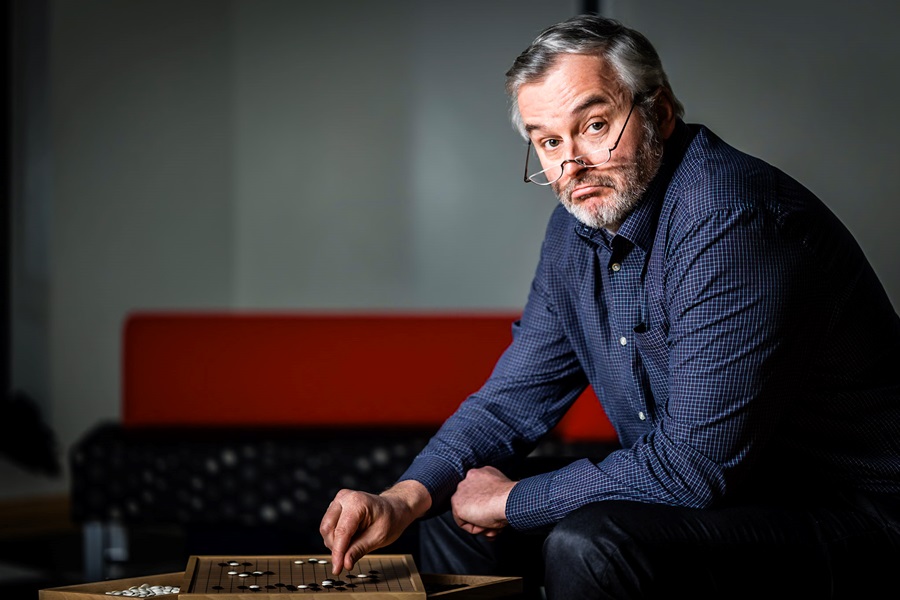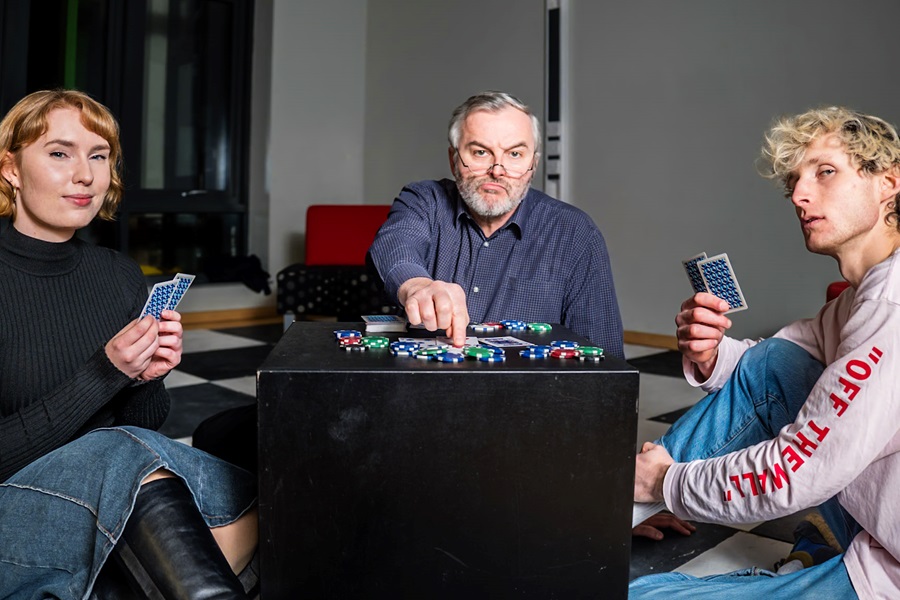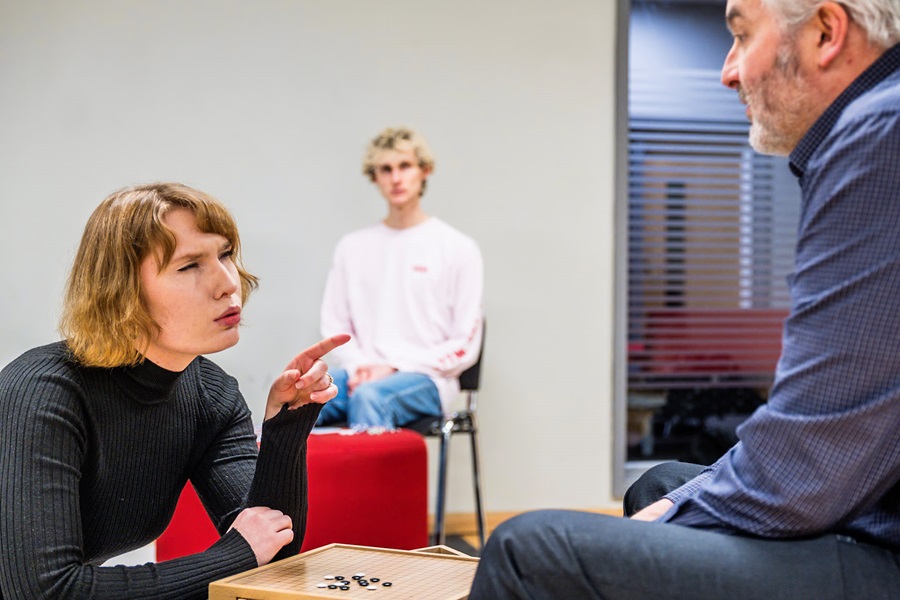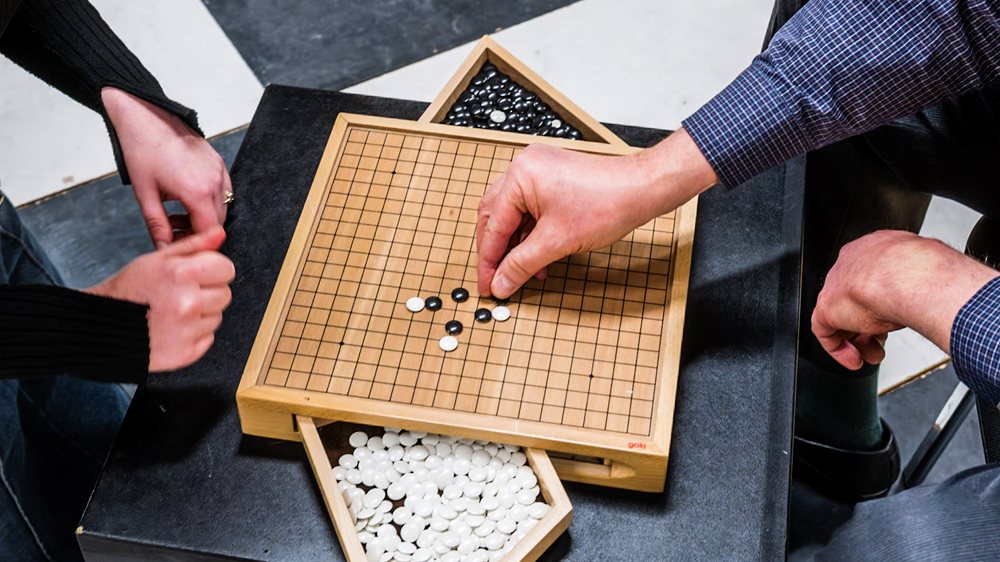Jamie Rycroft, writer of Corkscrew Theatre Company's 'ABRA', tells us about the creative process behind his new play.
One day when I was a teenager, I was searching through a filing cabinet in the family garage for my birth certificate, when I saw a letter with my name at the top, which I’d never seen before. It was written by my infants’ school, and addressed to my parents.
The letter outlined my “specific language impairment”, one that I hadn’t been aware of until this very moment, and the problems it would cause throughout my life, including:
- Finding it “increasingly difficult to access the national curriculum”
- Not being able to “cope in a normal language environment”
- “Poor confidence and self-worth” caused by my “constant experience of failure and confusion” (yes, that’s a direct quote from a note written about a six year-old)
What was the impairment in question? Apparently I had a habit of making up words, which made it difficult for others to understand me.

Now, I was lucky that this issue faded pretty quickly and didn’t affect the rest of my life. I was also lucky to have parents who chose not to make me aware of the existence of the note from my school. So for that reason it’s tempting to see my tendency to make up words as a gift rather than a curse, stemming from the same impulses that have led me to write creatively throughout my life.
Because I have always been making up words. When I was a kid, I used to make fake radio shows with my older sister: her interviews and news pieces would be interspersed with long stretches where I hijacked the tape recorder by myself and babbled a bunch of nonsense that clearly made sense in my head but was baffling to anyone else. One phrase that I remember saying a whole bunch of times throughout the recordings was mations of the way. No idea what it means.
Sometimes I’ve made up new words by accident. I was convinced that the word flambiguous was a perfectly normal word until I once dropped it into a conversation and realised my mind had accidentally fused together flamboyant and ambiguous.
But I’m pretending that my penchant for making up words is unique to me (and why not? We all like to feel special), when in reality we as people create new language all the times. We verb nouns and we make adjectivey words when they weren’t adjectivey before. All words are made up, after all. We just don’t think about that because we know what the words mean.

Throughout history, some nobly intentioned people have looked at all of humanity’s various global conflicts and concluded, perhaps correctly, that most of them stem from misunderstandings caused by differences in language. So these people try to create a Universal Language, or an auxlang, so that one day we’ll all speak with the same tongue as we presumably did before those pesky Babylonians built that tower a little too high for God’s liking. The most successful auxlang is Esperanto, but history is littered with fascinating failures like Volapük, Ido and Interlingua.
But the most fascinating kind of conlang of them all, the kind I decided to write a play about, is the philosophical language: the phillang. These are languages created with some kind of philosophical motivation. The logic goes, we can’t understand reality except through language. So if we changed our language, could we change reality?
There are lots of phillangs. There’s Toki Pona, which has a tiny and simple vocabulary in an attempt to make our thoughts simpler and clearer. There’s Láadan, which attempts to create a more feminist form of communication, creating words for concepts that a patriarchal society hasn’t deemed important: like radíidin, which means “a time that is allegedly meant to be holiday but instead becomes a burden because of all the work and preparation you have to do”.
And most intriguingly of all, there’s Loglan, which was created in the 1960s to be a purely logical language, in a way where people who spoke that language would inexorably become more rational people. But in a wonderful bit of irony, one that feels oh so irrational and human, the creator of Loglan stubbornly refused to accept changes to his language, and his followers made their own, more logical variation. Which they named Lojban.

Over the last few years, I’ve become a bit obsessed with the kind of people who take our natural impulse for language creation and take it to the next level, far beyond the mild case of glossolalia I had as a kid.
I’m not talking about people who bend, break and combine existing words, so that a listener can pretty quickly glean the context. I’m talking about the kind of person who would prefer to create a brand-new language from whole cloth. The kind of person who makes a constructed language.
You’ve likely heard of a few constructed languages: known as conlangs for short, because conlangers are of course fans of handy neologisms.
There are languages that people have created as a means of worldbuilding, to support a work of fiction. Think of Klingon, or Tolkein’s Elvish, or Na’vi from the Avatar movies. These are known as artlangs, and for every artlang that has been constructed to support a Hollywood blockbuster, there are dozens formed by enthusiastic linguists who tirelessly spend hours creating words and grammatical structures purely out of a love of of language.

My play ABRA is about a constructed language named Abraxas. Abraxas is fictional, though it shares a lot of parallels with Loglan and its associated struggles. Unlike the other creators listed above, I lack the talent to make an actual conlang with its own coherent grammar, so instead I did what I’ve enjoyed doing since childhood: make up fun-sounding nonsense words.
How do you mine conflict and drama from the story of people making up languages? My hopeful answer is that ABRA tells the story of people fighting over a shared creation, a situation that occurs any time people contribute to the construction of something imaginary: a language, an artwork, a political philosophy, the borders of a nation.
And since my story doesn’t have to be burdened by historical fact, I take things that little step further by having one of the creators discover something special, perhaps even magical, about Abraxas. In a world where the need for people to communicate with technology is becoming ever more important, wouldn’t it be wonderful to have a language that made it possible for man and machine to perfectly understand each other? What would you be willing to destroy to make that discovery?

ABRA is a play about people: about Roxanne, Tim and John, and the petty games they play with each other in their pursuit of their language. I’ve spent more time here talking about the languages than the play, because the language bit takes the most time to explain, and because I don’t want to spoil what takes place.
I hope the main thing I’ve managed to communicate with ABRA, as much as anyone can ever hope to be understood by a bunch of made-up sounds formed by a flapping tongue, is that the words we create are all well and good, but they serves as a mask for our deeper urges. To impress, to seduce, to belittle, to build bridges, to play mind games.
What else is there to say? Except cosnit-lejna pastiknola (come and see the show)!
ABRA runs at the Corpus Playroom from Wednesday 17 to Saturday 20 January 2024, 7.30pm

